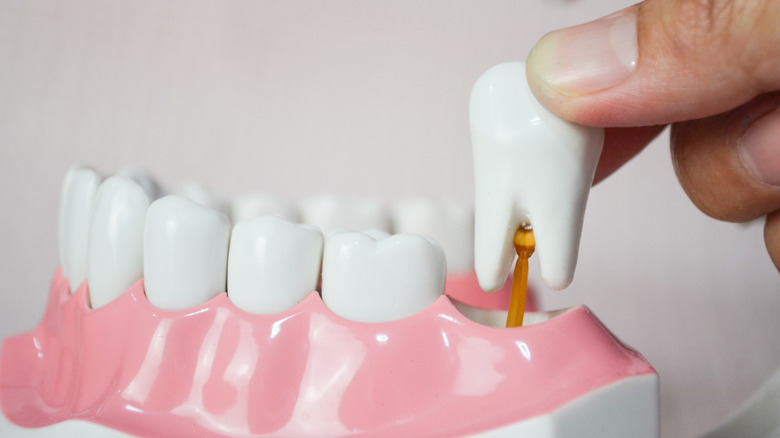The Real Reason We Still Have Wisdom Teeth
Wisdom teeth are the third and final set of molars in the back of the mouth that most people develop between the ages of 17 and 21. According to Healthline, wisdom teeth are intended to help mash up and grind down food, much like the rest of your molars. That's because molars are flat, as opposed to your sharper sets of teeth, which are used to help tear food into smaller pieces.
Wisdom teeth have largely outgrown their usefulness. While our ancestors once relied on wisdom teeth to chew tough foods without the help of utensils, we no longer rely on our teeth to help soften and cut up our food. Now, we cook food to soften it and we use forks and knives to cut it into bite-sized pieces. But due to genetics, most people will develop at least one wisdom tooth. Unfortunately, these teeth often lead to problems.
When do wisdom teeth need to be removed?
For people who get their wisdom teeth, they can often become impacted. This means that the wisdom teeth are either partially or completely trapped in the gums or jaw bone and cannot break through and erupt to the surface. According to Cleveland Clinic, this can cause pain in the upper or lower jaw. It's also not uncommon for impacted wisdom teeth to inflame the surrounding gum area, causing swelling and sensitivity. However, it's just as likely that they won't cause any noticeable symptoms at all.
Either way, impacted wisdom teeth can potentially lead to tooth decay and gum disease. That's why dentists often recommend getting them removed. If you're concerned about your wisdom teeth, you should get them evaluated by a dentist. They will most likely take an X-ray of your mouth to see if your wisdom teeth are impacted. If they are impacted or causing other problems, your dentist may recommend removal.


